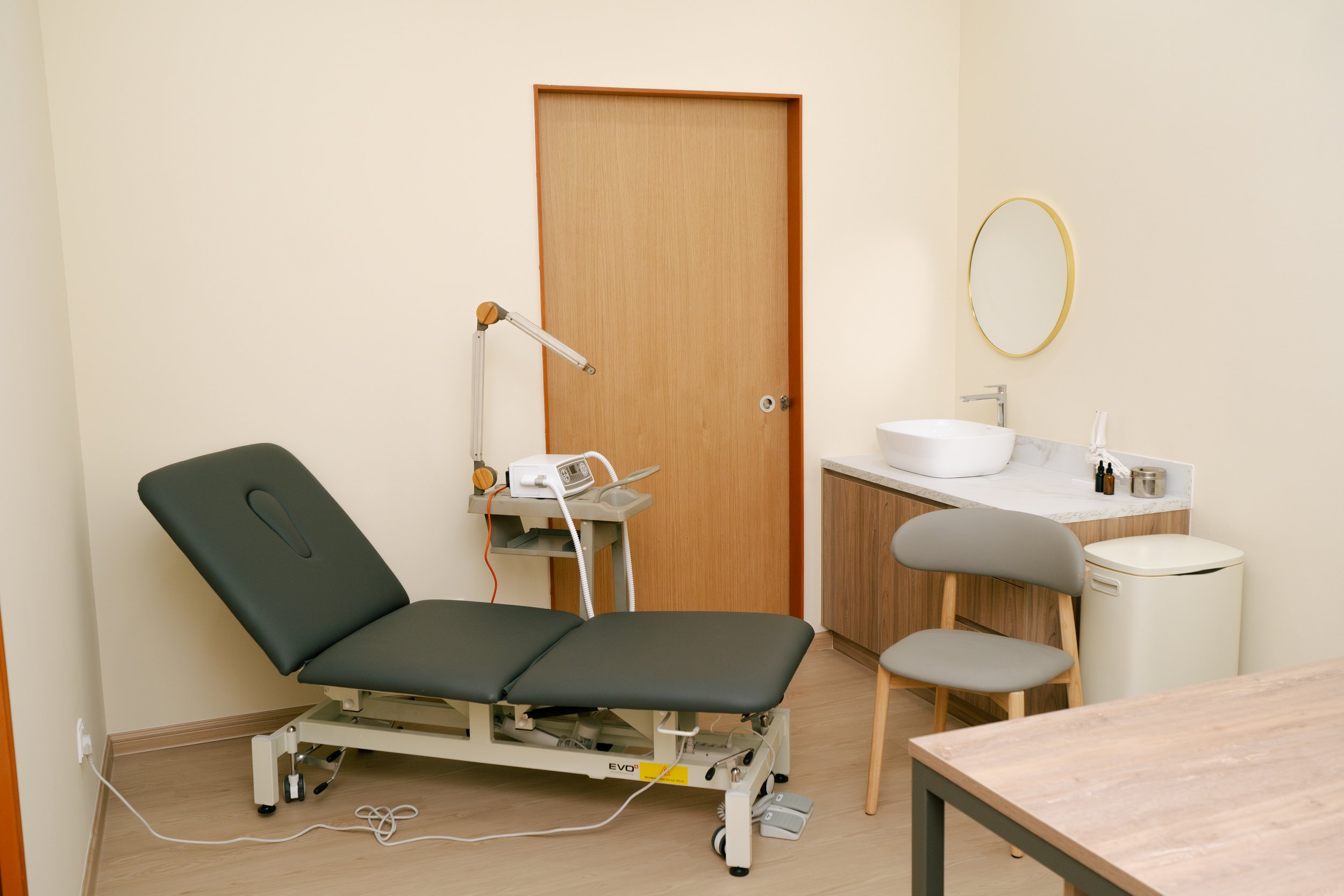
Osgood-Schlatter Disease
What Is Osgood-Schlatter Disease?
Osgood-Schlatter disease is not truly a “disease,” but rather a growth-related condition affecting the growth plate at the tibial tuberosity — the bony bump just below the kneecap. It’s most common in children aged 10–15 during growth spurts, especially those involved in sports that involve running, jumping, or squatting.
As the quadriceps muscle pulls on the patellar tendon — which connects to the tibial tuberosity — repetitive stress during periods of fast growth can inflame the growth plate, causing pain and swelling.
What Causes It?
The condition is caused by repetitive stress on the tibial growth plate during periods of rapid bone growth. Key contributing factors include:
Active participation in sports (e.g. football, basketball, running, dance)
Tight quadriceps muscles
Growth spurts (bones lengthen faster than muscles can adapt)
Biomechanical factors, such as overpronation (collapsed arches)
Poor flexibility or muscle imbalances
Symptoms
Children with Osgood-Schlatter disease often experience:
Pain just below the kneecap, especially during or after activity
A noticeable bump at the front of the shin
Swelling or tenderness at the tibial tuberosity
Pain that worsens with running, jumping, kneeling, or squatting
Stiffness that improves with rest
Symptoms typically affect one knee but can sometimes occur in both.
Diagnosing Osgood-Schlatter
At KL Foot Specialist Podiatry, we diagnose Osgood-Schlatter disease through a comprehensive biomechanical assessment and medical history. We’ll assess:
Pain location and severity
Knee alignment and function
Foot and leg posture
Muscle tightness or imbalances
Gait and movement patterns
If needed, we may refer for X-ray imaging to confirm the presence of growth plate inflammation or rule out other causes of knee pain.
Treatment Options
The good news: Most cases of Osgood-Schlatter disease respond very well to conservative podiatry care — especially when treated early.
At KL Foot Specialist, we tailor a treatment plan to your child’s needs and lifestyle. This may include:
Custom foot orthotics – to correct foot posture and reduce stress on the knees
Activity modification – helping your child stay active while avoiding symptom flare-ups
Targeted stretching and strengthening – especially of the quadriceps and hamstrings
Footwear advice or modifications – ensuring the shoes your child wears reduce joint stress
Education – about warm-up routines, rest, recovery and long-term prevention
DolorClast® Shockwave Therapy – reducing pain and inflammation at the tibial growth plate
DolorClast® Laser Therapy – reducing inflammation and accelerating recovery
We’ll also monitor progress and adjust the plan as your child grows or their needs change.
At-Home Care Tips
Parents can support their child’s recovery at home by:
Encouraging rest from aggravating activities (e.g. jumping sports)
Applying ice packs to reduce inflammation (15 mins, 1–2x/day)
Ensuring proper footwear and avoiding bare feet
Using anti-inflammatory medication if recommended by your GP
What Happens If It’s Ignored?
If left untreated, Osgood-Schlatter symptoms may worsen and become chronic — limiting your child’s ability to participate in sport and leading to:
Persistent swelling or bone prominence
Reduced flexibility or knee function
Painful kneeling or squatting
Lasting changes in the bone’s shape (which may persist into adulthood)
Preventing Osgood-Schlatter
While you can’t stop your child from growing, you can help them stay pain-free by:
Supporting their feet with good shoes or orthotics
Warming up and stretching before activity
Gradually increasing training loads
Addressing muscle tightness early
Encouraging cross-training to avoid overuse
Booking an early podiatry consult if knee pain starts
Book An Appointment
At KL Foot Specialist Podiatry, we help kids grow with less pain and more freedom. Whether it’s Osgood-Schlatter or another cause of knee pain, we’ll help you get clear answers and a personalised treatment plan — all in one visit.
Call us or book online today to get started.
